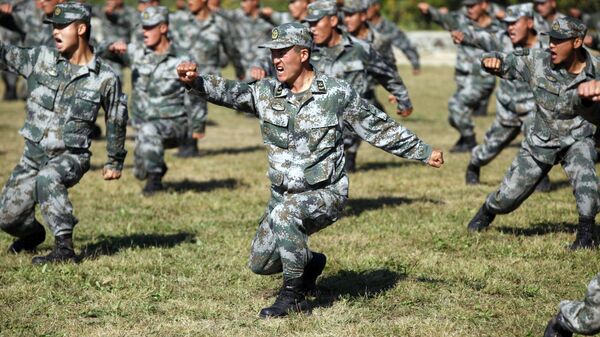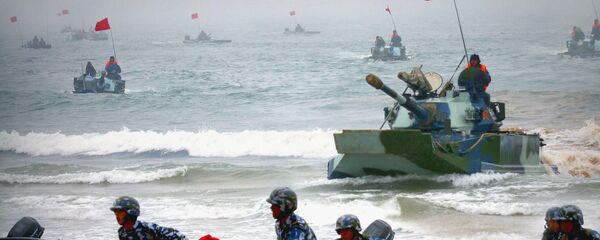Pentagon officials have repeatedly named rising China as a major challenge to US security. "But is China that dangerous?" asks Doug Bandow, a senior fellow at the Cato Institute and former special assistant to President Ronald Reagan.
"The United States dominates the globe militarily. Washington possesses the most powerful armed forces, accounts for roughly 40 percent of the globe's military outlays, and is allied with every major industrialized state save China and Russia. Yet the bipartisan hawks who dominate US foreign policy see threats at every turn," Bandow writes in his article for the National Interest.
The report says that the People's Liberation Army (PLA) is currently focused on improving key capabilities, including ballistic and cruise missiles, aircraft and air defense, information capabilities, submarines, and amphibious and airborne assault units, not to mention counter-space and cyber operations, as well as electronic warfare.
"This program may sound menacing, but Beijing's ambitions are bounded," Bandow notes.
Indeed, the Pentagon observers admit that China's leaders regard their strong military force primarily as a guarantee that Beijing's national interests and sovereignty will be preserved — and that is mere deterrence.
"In the short term, Beijing's principal objective is to advance its territorial claims in the Asia-Pacific without provoking conflict," the scholar notes, citing the DOD observers.
Does it really pose a challenge to the US security?
"Washington officials might feel uncomfortable sharing leadership with the PRC, but that cannot justify a military response," Bandow emphasizes.
He draws attention to the fact that even the Pentagon "does not believe" that Beijing is harboring aggressive plans. In any event, with Washington spending about $600 billion on defense annually, China is simply unable to overtake the US, he notes.
Bandow echoes US scholars Erika Solem and Karen Montague, who conducted a scrupulous examination of China's most advanced hypersonic weapons for China Brief Volume; their research was supported by the Jamestown Foundation and republished by The National Interest in early May.
"There are clear symbolic and military benefits for the nation that successfully develops a hypersonic weapon. The DF-ZF, though impressive, still has a long way to go before it can truly threaten the security of the United States and its allies," Solem and Montague emphasized, adding that there are strong indicators that China is primarily focused on addressing regional threats.
"China and the US and are not disputing parties to each other. Therefore, the two countries should avoid the trap of security dilemma and misunderstandings by engaging in dialogues and clarifying each other's intentions. China and the US need and should be able to work towards cooperation," Fu Ying, Chairperson of the Foreign Affairs Committee of the National People's Congress of China, and Wu Shicun, President of the National Institute of the South China Sea, wrote in their recent article for the National Interest.
Bandow warns that in its turn, Washington should not make attempts "to dominate China along the latter's border," as it might trigger war.
The United States should be watchful of China's rise, he stresses. However, instead of regarding Beijing a potential threat US policymakers "should seek to accommodate, rather than combat such an important rising power," Bandow underscores.





